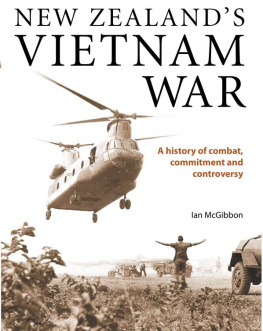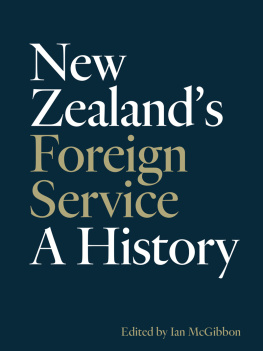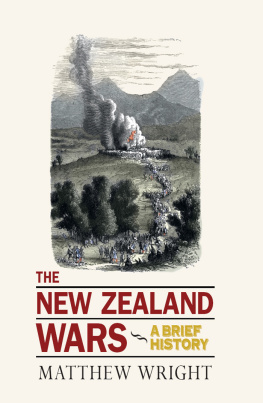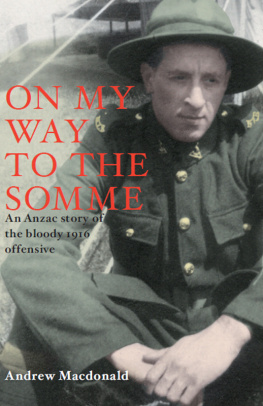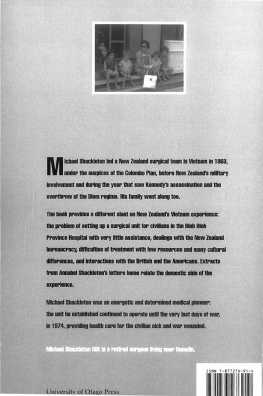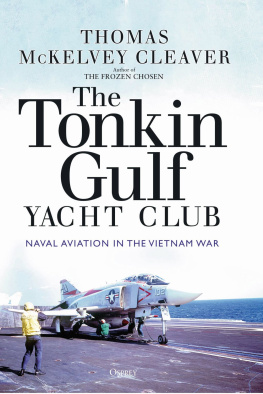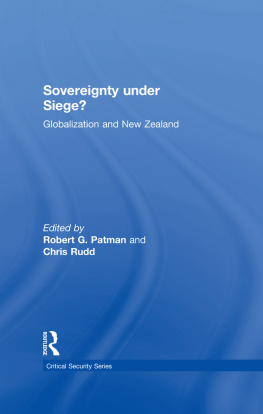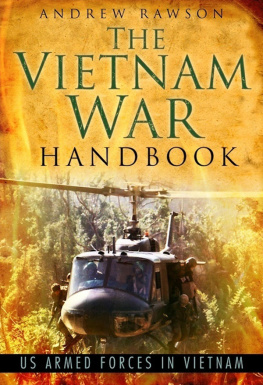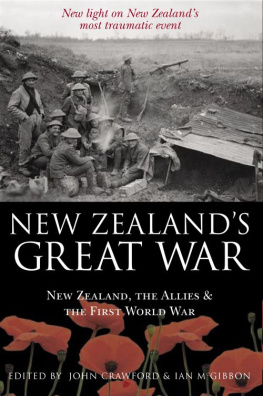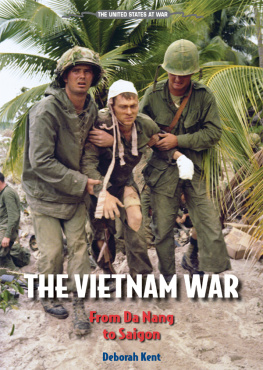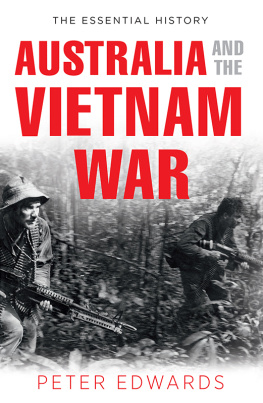Between 1963 and 1975 about 3200 New Zealanders became involved in a civil war in Indo-China between the government of South Vietnam and the communist insurgents (and later regular troops of North Vietnam) seeking to overthrow it. Some tried to alleviate the effects of war on civilians; some represented New Zealand there; but the bulk of the 3200 were members of the New Zealand armed forces, who served in both non-combatant and combat roles. These New Zealanders were not the first to fight in an Asian war a force had been sent to Korea in the early 1950s but they were the first to do so as members of a community deeply divided by the nature of New Zealands military involvement in the conflict.
This history does not traverse the reasons for New Zealands decisions to send military forces to South Vietnam. Professor Roberto Rabel, in his New Zealand and the Vietnam War, Politics and Diplomacy, published by Auckland University Press in 2005, has admirably covered this aspect. It does seek to explain and describe the various activities undertaken by New Zealanders within the context of the war as a whole. In terms of combat troops, that involvement was a drop in the bucket, just 0.1 per cent of that of its primary ally, the United States. New Zealanders played no part in the direction of the war effort at more than artillery battery or infantry company level.
New Zealand forces took part in most of the war as a small subordinate element of 1 Australian Task Force and their operations were part of a collective effort. Although there is much in this book about the task force, it is not a history of task force operations. The focus is on New Zealanders activities. This inevitably provides a somewhat unbalanced perspective, implying perhaps a more important role for the New Zealanders than was the case. It should always be remembered that New Zealand provided one of three field artillery batteries and two of 13 infantry companies in the task force, that V Force amounted to about 9.5 per cent of the task forces numerical strength, and that Australian units had similar experiences and impact to those described here. The comprehensive Australian official histories listed in the bibliography provide the Australian side of the story.
Writing a history of counter-insurgency operations presents problems. In the first place, coherence is affected by the absence of a front line. Operations taken against guerrillas in Vietnam were designed to destroy units rather than to hold specific territory. Troops ranged over the same areas repeatedly in search of the enemy. Second, most operations followed a similar pattern, and were characterised by only limited and intermittent contact with the enemy. To describe such operations in detail would be to risk producing an unmanageable manuscript. I have covered the main clashes between New Zealand forces and the enemy, but in describing the relatively routine operational sweeps have focused on actions in which New Zealanders lost their lives or, in some cases, were severely wounded. In their various aspects, these tragic incidents illustrate the types of combat endured by our troops in South Vietnam.
There is a vast array of material relating to New Zealands activities in Vietnam, though it is widely scattered. The most important sources are the records of the New Zealand Defence Force, which include many reports sent by V Force to Wellington, and of the then Department of External Affairs. Most of these records are now lodged in Archives New Zealand, or, if still held by Defence, soon will be. Some of V Forces records are held by Defence; others have been scattered or destroyed. The Australian War Memorial, which holds the records of Australian forces involved in Vietnam, is another important repository of material related to New Zealands effort. The war diaries of the various units, which are available on the memorials website, are especially valuable. I was fortunate to be able to supplement these official records with a considerable range of privately held material, including diaries and letters written at the time. In quoting from this material, I have left punctuation untouched but generally corrected obvious spelling mistakes and misused or missing apostrophes. Interviews with participants also proved valuable.
Like the above-mentioned Australian official histories, New Zealands Vietnam War is an official history in the sense that it was produced under the auspices of the state. It does not, however, represent the governments view of the war. I was given no guidelines other than to produce a work that complemented Roberto Rabels political and diplomatic history. Nor was I subjected to any form of censorship. The work has, however, benefited from assistance from a number of state agencies. One is, of course, my employer, the Ministry for Culture and Heritage, which has proved supportive throughout.
The New Zealand Defence Force also made a major contribution to this work, providing funds that allowed me to carry out research both overseas and in New Zealand. The former included research trips to the United States, Australia twice, and Vietnam, where I was able to visit the main places in which New Zealanders, both military and civilian, operated during the war.
I am indebted to many people at the Ministry for Culture and Heritage for their assistance in producing this book. They include former Chief Executive Martin Matthews, Chief Historian Dr Bronwyn Dalley, Neil Atkinson, Fran McGowan and David Green. Claire Taggart and Lyn Belt smoothed the way by arranging travel and other activities. Paul Diamond, the Vietnam Oral Historian, and his team of oral history interviewers proved very helpful in obtaining personal records held by veterans. Erin Flanagan carried out valuable picture research.
At New Zealand Red Cross Andrew Weeks and Andrew McKie allowed me access to records relating to the Red Cross teams deployed in South Vietnam. I am grateful to the latter Andrew for helping me to find documents and photographs.
At Defence HQ my friend and colleague John Crawford, the Defence Historian, was ever ready to assist with a host of matters relating to access to documentary material held either at Archives New Zealand or within the NZDF. I benefited greatly from being able to work in the classified registry for a prolonged period. Tony Williams, the superintendent of document management services at the NZDF, was very helpful in searching obscure references; thanks, too, to his colleagues Tony Mathieson and Pat Hanson for helping to mind me during my researches in the classified records. Matthew Buck and his staff at NZDF Archives in Trentham proved equally helpful. I also greatly appreciate the assistance I received from Caroline Carr, Mary Slatter and Katrina Willoughby and other staff at the Defence Library. Outside Defence HQ, Major Gavin Walkinshaw at Burnham Camp, Major Jeff Howe at Linton Camp, and Dolores Ho at the Queen Elizabeth II Army Memorial Museum in Waiouru facilitated research in records held at Burnham, Linton and Waiouru military camps respectively.
Others to whom I am indebted are: archivist and Vietnam veteran Richard Boylan for his assistance at the United States National Archives; Sister de Porres at the Archdiocesan Archives, Wellington; Rob Rabel, now Pro Vice-Chancellor (International) at Victoria University of Wellington, for numerous illuminating conversations and good fellowship; Nguyen Thanh Binh, Khanh Nguyen, Tran Do Khoa Huong and Loan Kim Nguyen for helping me during my visit to Vietnam, along with New Zealands Ambassador in Hanoi, James Kember, Consul-General Ian Healy in Ho Chi Minh City, and Barbara Dawson in Qui Nhon; David Lackey for his hospitality and assistance in Canberra; Phillip OShea, the New Zealand Herald of Arms, Terry Brown and Jack Hayes for their advice and assistance on honours and awards made to New Zealanders; Neil Bradley, Bob Davidson, Mike Harvey, Robin Klitscher, Don McIver, David Morris, Dennis OBrien, Rick Ottaway, John Scrimshaw, Michael Shackleton, Morrie Stanley, Nick Turner, Mike Wicksteed and Frank Wilson for reading various sections of the manuscript relating to periods when they served in Vietnam; Rod Baldwin for his advice on various aspects and for the valuable tapes and letters he made available; and finally all those veterans, too numerous to mention here but whose names are listed in the bibliography, who gave me access to personal material in their possession or provided accounts of their service. The advice, comments and suggestions of those mentioned above were gratefully received, but they, of course, bear no responsibility for the contents of this book.

